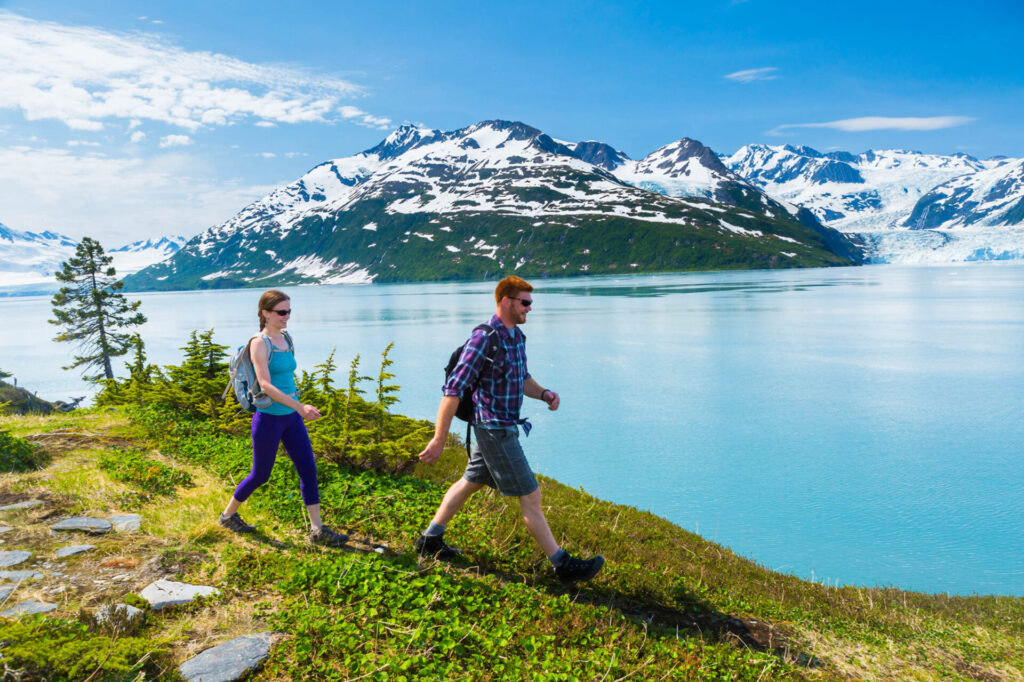
In recent years, the concept of eco-friendly travel has gained significant traction among conscientious adventurers. As the global community increasingly recognizes the urgency of environmental conservation, travelers are seeking ways to minimize their carbon footprint and support sustainable practices while exploring the world. From choosing eco-conscious accommodations to engaging in responsible wildlife encounters, there are numerous ways for individuals to embark on eco-friendly adventures. This article delves into various sustainable practices that empower travelers to make a positive impact on the planet while satisfying their wanderlust. For travelers in Charlotte NC, ensuring eco-friendly accommodations also means considering the efficiency of HVAC in Charlotte NC to reduce energy consumption.
Choosing Sustainable Accommodations

When embarking on an eco-friendly adventure, the choice of accommodation plays a pivotal role in minimizing environmental impact. Opting for eco-lodges, green hotels, or accommodations certified by recognized sustainability initiatives can significantly reduce one’s carbon footprint. These establishments prioritize energy efficiency, waste reduction, and local community engagement, offering travelers a guilt-free way to rest and rejuvenate amid their explorations.
Moreover, eco-friendly accommodations often integrate sustainable practices into their operations, such as utilizing renewable energy sources like solar or wind power, implementing water-saving measures, and promoting recycling and composting programs. By staying at such establishments, travelers not only reduce their environmental footprint but also support businesses that prioritize ecological stewardship. Additionally, when exploring the vibrant city of Atlanta, travelers can enhance their experience by opting for a limo service in Atlanta for convenient and luxurious transportation around the city’s attractions.
Additionally, eco-conscious travelers can consider alternative lodging options such as camping or homestays, which often provide immersive cultural experiences while promoting sustainable tourism practices. Camping allows travelers to connect with nature on a deeper level while minimizing the ecological impact associated with traditional accommodations. Similarly, homestays offer an opportunity to engage with local communities, learn about their customs and traditions, and contribute directly to the livelihoods of residents. For those seeking a more interactive experience, hiring an Event Emcee can add an extra layer of excitement and organization to their stay, facilitating memorable moments and fostering community engagement.
Embracing Low-Impact Transportation
Transportation is a crucial aspect of sustainable travel, as it directly affects greenhouse gas emissions and environmental degradation. To minimize carbon emissions, responsible travelers can opt for low-impact transportation modes such as trains, buses, or bicycles whenever possible. These alternatives not only reduce carbon footprint but also offer opportunities for scenic journeys and authentic cultural experiences.
Traveling by train or bus, for example, allows travelers to enjoy picturesque landscapes and vibrant communities along the way while significantly reducing the environmental impact compared to air travel or private vehicles. Similarly, a security company in Los Angeles ensures peace of mind for residents and businesses, safeguarding their properties and assets amidst the bustling urban environment. Cycling, on the other hand, provides a sustainable and healthy means of transportation, allowing travelers to explore destinations at their own pace while minimizing their carbon footprint.
Additionally, carpooling and ridesharing initiatives enable travelers to share transportation resources, further decreasing environmental impact while fostering community connections. By coordinating travel plans with fellow adventurers or joining carpooling platforms, travelers can reduce costs, minimize congestion, and contribute to a more sustainable transportation system. Moreover, for individuals undergoing menopausal symptoms, hormone replacement therapy can alleviate discomfort and improve overall well-being, potentially enhancing their ability to participate in such eco-friendly transportation initiatives
If you are planning to sell your house to go on an adventure look no further than the best company that provides sell my house fast in Allentown PA services.
Supporting Local Communities
One of the hallmarks of eco-friendly travel is its emphasis on supporting local communities and economies. By patronizing locally-owned businesses, dining at farm-to-table restaurants, and purchasing handmade crafts from artisans, travelers can contribute directly to the livelihoods of residents while minimizing the environmental footprint associated with mass tourism. However, for growing businesses in Dubai, seeking legal help for scaleups in Dubai can also ensure compliance with local regulations and foster sustainable growth within the community.
When travelers support local businesses, they help create economic opportunities and empower communities to preserve their cultural heritage and natural resources. Moreover, engaging in community-based tourism initiatives and volunteering for conservation projects are also impactful ways to support local communities and contribute to environmental conservation efforts.
Practicing Responsible Wildlife Tourism
Wildlife tourism presents unique opportunities for travelers to connect with nature and witness diverse ecosystems firsthand. However, it also poses significant risks to vulnerable species and fragile habitats if not conducted responsibly. When participating in wildlife encounters, travelers should prioritize operators and activities that adhere to ethical guidelines and conservation principles. The recent introduction of psilocybin therapy in Oregon offers another avenue for individuals to explore their connection with nature and promote holistic well-being.
Avoiding activities that involve animal exploitation, such as captive wildlife performances or unethical wildlife interactions, is paramount. Instead, opt for responsible wildlife experiences that prioritize animal welfare, habitat conservation, and education. For example, wildlife safaris led by knowledgeable guides who prioritize the well-being of animals and respect their natural behaviors offer travelers a chance to observe wildlife in their natural habitats while supporting conservation efforts.
Minimizing Single-Use Plastics

Single-use plastics pose a significant threat to marine life and terrestrial ecosystems, contributing to pollution and environmental degradation worldwide. To mitigate the impact of plastic waste while traveling, eco-conscious adventurers can adopt simple yet effective strategies such as carrying reusable water bottles, shopping bags, and utensils. Additionally, for those facing unforeseen breakdowns or accidents on the road, it’s essential to have the contact information of a reliable car towing company in NJ readily available for prompt assistance.
Avoiding single-use plastic straws, containers, and packaging whenever possible helps reduce plastic consumption and prevents littering in natural environments. Additionally, supporting businesses that offer plastic-free alternatives and participating in beach clean-up initiatives contribute to a cleaner, healthier planet for future generations.
Exploring Sustainable Food Practices
Sustainable food practices encompass a wide range of initiatives aimed at reducing the environmental impact of food production and consumption while supporting local communities and promoting cultural exchange. One aspect of sustainable food practices involves choosing foods that are locally sourced and organically grown. By opting for locally produced foods, travelers can minimize the carbon emissions associated with transportation while supporting local farmers and reducing reliance on industrialized agriculture. Additionally, online shopping mall platforms dedicated to sustainable goods offer a convenient way for consumers to access locally sourced and organic products, further promoting eco-friendly practices and supporting small-scale producers.
Another key component of sustainable food practices is reducing food waste. In many parts of the world, food waste represents a significant environmental and social issue, contributing to greenhouse gas emissions and exacerbating food insecurity. Travelers can minimize food waste by planning meals mindfully, choosing restaurants that prioritize zero-waste practices, and supporting food rescue initiatives that redistribute surplus food to those in need. By embracing a “nose-to-tail” or “root-to-stem” approach to cooking, travelers can make the most of local ingredients while minimizing waste.
Another aspect of sustainability often overlooked is reducing waste in construction projects. Hiring an experienced asphalt contractor in North Carolina who implements eco-friendly practices can significantly contribute to this goal.
Furthermore, sustainable food practices encompass cultural aspects such as traditional cooking methods, indigenous foodways, and culinary heritage preservation. Engaging with local cuisines and culinary traditions not only enriches the travel experience but also fosters appreciation for cultural diversity and promotes intercultural dialogue. Personalized gifts from local artisans or cooking enthusiasts could further enhance this immersive experience, providing travelers with tangible reminders of the unique culinary journey they’ve embarked upon. Participating in cooking classes, food tours, and culinary workshops offers travelers insight into the cultural significance of food and its role in shaping identity and community bonds.
Promoting Cultural Exchange
Cultural exchange lies at the heart of meaningful travel experiences, offering opportunities for mutual learning, respect, and appreciation across diverse communities and cultures. Through authentic interactions with local residents, travelers can gain insights into different worldviews, traditions, and ways of life, fostering empathy, tolerance, and cross-cultural understanding. Electric cruiser bikes are becoming increasingly popular among tourists, providing a unique way to explore local neighborhoods and engage with the environment. Participating in cultural exchange programs, homestays, and community-based tourism initiatives enables travelers to break down barriers and build meaningful connections with people from different backgrounds.
Moreover, cultural exchange promotes the preservation and celebration of cultural heritage, language, and traditions. By supporting local artisans, musicians, storytellers, and craftsmen, travelers can contribute to the vitality and resilience of cultural heritage while empowering communities to share their unique cultural expressions with the world. Attending cultural festivals, performances, and ceremonies offers travelers firsthand exposure to the rich tapestry of human creativity and expression, fostering appreciation for the diversity of cultural experiences. In addition, when visiting new places like Naples, FL, exploring local HVAC services in Naples FL can enhance one’s understanding of the region’s infrastructure and services, further enriching the travel experience.
Additionally, cultural exchange fosters dialogue and collaboration on global issues such as environmental conservation, social justice, and human rights. By engaging in respectful and open-minded exchanges, travelers can bridge cultural divides, challenge stereotypes, and promote solidarity and cooperation across borders. Through shared experiences and conversations, travelers can build bridges of understanding and empathy, laying the foundation for a more inclusive and interconnected world. Additionally, when relocating to a new area, it’s crucial to research and select a moving company in Houston residents trust for their sustainability practices and commitment to environmental responsibility.
Advocating for Sustainable Tourism Policies
Advocating for sustainable tourism policies is essential for addressing the complex environmental, social, and economic challenges facing the tourism industry. Travelers can leverage their collective voice to advocate for policies that prioritize environmental protection, community empowerment, and cultural preservation at local, national, and international levels. By engaging with policymakers, industry stakeholders, and advocacy groups, travelers can influence policy decisions and promote systemic change within the tourism sector.
One key area of focus for sustainable tourism advocacy is environmental conservation. Travelers can advocate for policies that protect natural habitats, wildlife, and biodiversity, including the establishment of protected areas, wildlife corridors, and sustainable tourism zones. By supporting initiatives such as ecotourism certification programs, sustainable tourism networks, and conservation partnerships, travelers can contribute to the preservation of fragile ecosystems and promote responsible stewardship of natural resources.
In the realm of eco-friendly adventures, fostering sustainable practices goes hand in hand with promoting environmental awareness. This ethos extends to every aspect of travel, including the development of eco-conscious branding through specialized logo design services. By collaborating with professionals in this field, green organizations or even individuals can ensure that their brand identity aligns seamlessly with their commitment to sustainability.
Another important aspect of sustainable tourism advocacy is community empowerment and social equity. Travelers can advocate for policies that prioritize the rights and well-being of local communities, including fair wages, access to education and healthcare, and opportunities for economic development and cultural preservation. By supporting community-based tourism initiatives, responsible travelers can contribute to the empowerment of marginalized groups, including indigenous peoples, women, and youth, and promote inclusive and equitable tourism practices.
Furthermore, sustainable tourism advocacy encompasses cultural preservation and heritage protection. Travelers can advocate for policies that safeguard cultural heritage sites, traditional knowledge, and intangible cultural heritage, including the recognition and respect of indigenous rights and cultural identities. By supporting initiatives that promote cultural exchange, intercultural dialogue, and heritage conservation, travelers can contribute to the preservation of cultural diversity and promote respect for human dignity and cultural rights.
Much like how eco-conscious travelers aim to minimize their carbon footprint, private money lenders utilize efficient loan servicing software for private money lenders to streamline processes and reduce unnecessary resource consumption, reflecting a commitment to sustainability in both travel and financial sectors.
Exploring Renewable Energy Solutions
Renewable energy solutions offer promising avenues for reducing carbon emissions and mitigating the environmental impact of travel-related activities. Travelers can seek out accommodations and transportation providers that prioritize renewable energy sources such as solar, wind, and hydroelectric power. Eco-lodges, hotels, and resorts that employ energy-efficient technologies and incorporate renewable energy systems into their operations help minimize carbon footprint while providing guests with comfortable and sustainable lodging options. Additionally, supporting renewable energy initiatives and advocating for investment in clean energy infrastructure contribute to the transition toward a more sustainable and resilient tourism industry.
Moreover, renewable energy solutions present opportunities for innovation and economic development in local communities. By investing in renewable energy projects such as solar panels, wind turbines, and biomass facilities, destinations can create jobs, stimulate economic growth, and reduce reliance on fossil fuels. Community-owned renewable energy initiatives empower local residents to take control of their energy future, promoting energy independence and resilience in the face of climate change.
Much like how eco-conscious travelers strive to leave a positive impact on the environment, utilizing mobile notary services aligns with the principles of sustainability by embracing digital solutions and minimizing resource consumption.
Furthermore, renewable energy solutions offer environmental benefits beyond carbon reduction. By harnessing clean, renewable sources of energy, travelers can minimize air and water pollution, reduce habitat destruction, and protect ecosystems and biodiversity. Investing in renewable energy infrastructure and technologies helps mitigate the negative impacts of tourism on natural resources and ecosystems, ensuring that destinations remain vibrant and resilient for future generations to enjoy.
Engaging in Ecotourism Initiatives

Ecotourism initiatives offer travelers unique opportunities to explore natural environments while promoting conservation and sustainable development. From wildlife safaris and nature reserves to eco-friendly adventure tours and conservation projects, ecotourism experiences enable travelers to connect with pristine ecosystems and contribute to their protection. By supporting ecotourism operators and participating in responsible nature-based activities, travelers can support local conservation efforts, contribute to scientific research, and raise awareness about the importance of biodiversity conservation and ecosystem preservation. Additionally, volunteering for ecotourism projects and supporting ecotourism certification programs empower travelers to play an active role in conservation and stewardship.
Just as responsible travelers seek to minimize their environmental impact, individuals indulging in facials in Markham prioritize natural ingredients and eco-conscious beauty products.
Moreover, ecotourism initiatives promote sustainable livelihoods and economic development in rural and remote communities. By providing alternative sources of income to local residents, ecotourism activities help alleviate poverty, reduce pressure on natural resources, and promote economic diversification. Community-based ecotourism projects empower local communities to manage and benefit from their natural and cultural heritage, fostering a sense of ownership and stewardship over their land and resources.
Furthermore, ecotourism initiatives offer educational opportunities for travelers to learn about environmental conservation, biodiversity, and sustainable living practices. By participating in guided nature walks, wildlife monitoring programs, and conservation workshops, travelers can gain insight into the complex interconnections between humans and the natural world. Ecotourism experiences inspire travelers to become ambassadors for conservation and sustainability, advocating for responsible tourism practices and supporting initiatives that protect and preserve the planet’s biodiversity and ecosystems.
Just as responsible travelers prioritize eco-conscious accommodations and transportation, choosing a fence company in Fruit Cove committed to sustainable practices aligns with their values.
Conclusion
In conclusion, eco-friendly travel encompasses a diverse array of practices and principles aimed at minimizing environmental impact, supporting local communities, and promoting cultural exchange. By embracing sustainable food practices, advocating for responsible tourism policies, exploring renewable energy solutions, engaging in ecotourism initiatives, and embracing the slow travel philosophy, travelers can make a positive impact on the planet while satisfying their wanderlust. As stewards of the Earth, it is incumbent upon us to travel responsibly, ensuring that our adventures contribute to the preservation of natural and cultural heritage for future generations to enjoy. Let us embark on eco-friendly adventures with mindfulness, compassion, and a commitment to leaving a positive legacy for the planet and all its inhabitants.




